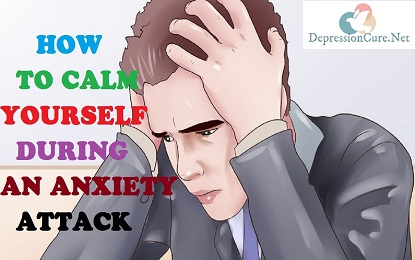What is meningitis?
Meningitis that occurs in meninges is called meningitis. It is also known as brain fever. The meninges are three membranes that cover the brain and spinal cord. Meningitis may occur when fluids located around meninges become infected.

There are many types of this disease, which can be bacterial, viral, and fungal.
Bacterial meningitis can be severe and can spread when people come in close contact with each other. Viral meningitis is less acute, and most people recovers completely without treatment. Fungal meningitis is a very rare form of the disease. It generally occurs in people who have weak immunity.

Inflammation during meningitis usually aggravates symptoms such as headaches, fever, and stiff neck.
Some patients with encephalitis recover within a few weeks without treatment. Other patients may have severe conditions and require immediate antibiotic treatment.
If you find that a person is suffering from meningitis, get him treated immediately. Serious complications can be prevented by timely treatment of bacterial meningitis.
Prevalence of Meningitis:

According to the research by World Health Organization (WHO), over one million suspected cases of meningitis have been reported in the last 2 decades, and more than 100,000 people have died so far.
Even after identifying the disease within 24 to 48 hours of the onset of symptoms and starting adequate treatment, five to ten percent of people are unable to struggle with the disease. If left untreated, about 50 percent of the patients may die.
Click Here To Read: 40 Interesting Phobia Facts
Types of meningitis:
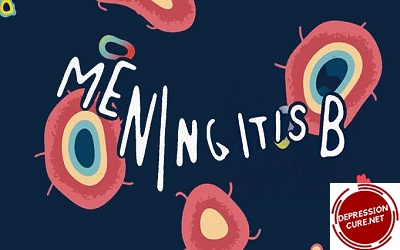
Viral & bacterial infections are the most common causes of meningitis. There are various other types of this too –
-
Bacterial Meningitis:
Bacterial meningitis develops immediately within a few hours and can cause permanent disability or death. Most deaths occur within 24?48 hours of the onset of symptoms.
Most bacterial meningitis is caused by Neisseria meningitis (meningococcus), Streptococcus pneumoniae (Pneumococcus), and Haemophilus influenza type B (HIB).

-
Viral Meningitis:
The most common type of meningitis is viral meningitis & is usually less severe. Most of the patients recover without any permanent damage, although it may take several weeks or months to recover fully.
Many types of viruses can cause meningitis & are usually spread through coughing sneezing or fecal contamination. The most common group ‘enterovirus’ resides in the respiratory and intestinal tract and can cause colds and sore throat with fever, headache, and muscle aches. It periodically spreads into enteroviruses, meninges and causes meningitis.
-
Fungal Meningitis:
The Fungal meningitis can be severe, but it is rarely seen. Fungal meningitis is not contagious & spreads by inhaling fungal spores from the environment. This disease mostly occurs in people who are suffering from AIDS or whose immunity is weak.
-
Other Types of Meningitis:
Meningitis can also be spread by other means, including parasitic or non-infectious medium, such as – cancer, lupus, some medications, head injuries, brain surgery, or the current condition of the skull or spine.
Meningitis Symptoms
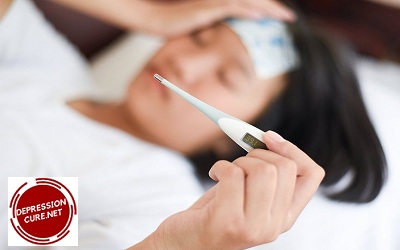
What are the signs and symptoms of meningitis in adults?
Approximately 25% of encephalitis patients develop symptoms of encephalitis in more than 24 hours. The rest usually become ill in one to seven days.
If antibiotics are being taken for another infection, the symptoms may take longer to develop or may have a reduced effect. If a person is developing fungal meningitis (usually HIV positive), the symptoms may take several weeks to progress.
The main symptoms of meningitis include fever, headache, and neck numbness. These three primary symptoms are found in about 45% of the people. However, almost all of its patients have at least one symptom.
Main characteristics:
- Most people with encephalitis have a headache.
- Symptoms of neck stiffness are seen in most patients with encephalitis.
- Most meningitis patients have fever and chills.
- Many people vomit.
- Most patients with encephalitis have extreme sensitivity to bright light (photophobia).
- To have a seizure.
- History of recent upper respiratory tract infection (eg. cold, sore throat, etc.)
Less seen symptoms
- Localized weakness or loss of strength or sensation (especially on the patient’s face).
- Swelling & pain in one or more joints.
- A new rash, which looks like bruises or small red spots.
Click Here To Read: 50 Interesting Sleep Facts
Meningitis Causes
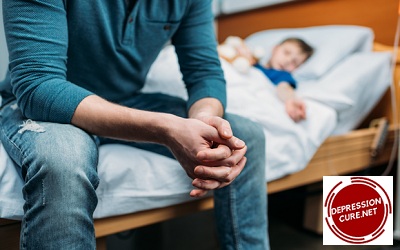
Causes of meningitis:
The most common cause of meningitis is a viral infection. This is followed by bacterial infections, and the rarest cause is a fungal infection. Since bacterial infection can be serious, identification of its cause is necessary.
-
Bacterial meningitis:
Bacteria enter our bloodstream and reach the brain and spinal cord and cause acute bacterial meningitis. But this can also happen when bacteria directly attack meninges.
It may be due to ear or sinus infection, skull fracture, or some surgery. Several strains of bacteria (Strains) can cause acute bacterial meningitis. These bacteria are –
Streptococcus pneumonia (Pneumococcus)
This bacterium is a common cause of bacterial meningitis in adolescents, infants, and adults. It usually causes pneumonia, ear, or sinus infection. A vaccine can help prevent this infection.
Neisseria meningitides (meningococcus)
This bacterium is another major cause of bacterial meningitis. These bacteria generally cause upper respiratory infection, but upon entering the bloodstream, meningococcal can cause meningitis.
It is highly contagious and mainly affects teenagers and older people. This can spread the local epidemic to college hostels, boarding schools, and homes built for soldiers. Its vaccine can help prevent infection.
Haemophilus influenza
Haemophilus influenza type B (Hib) bacteria used to be the leading cause of bacterial meningitis in children. Still, cases have been reduced to a great extent by new HIB vaccines.
Listeria monocytogenes (Listeria) – These bacteria can be found in cheese, hot dogs, and meat made from boiled milk. Pregnant women, newborns, older persons, and people with weakened immune systems have the highest chances of infection with these bacteria.
-
Viral meningitis
Viral meningitis is usually less severe and often resolves on its own. For most cases of viral meningitis, a group of ‘entero virus’ viruses are responsible, most common in late summer and early autumn. Viral meningitis can also spread due to HIV, herpes simplex virus, mumps, West Nile virus, etc.
-
Chronic meningitis
Slow-growth organisms (such as fungi and Mycobacterium tuberculosis) invade the membranes and fluids around your brain and cause chronic meningitis.
Chronic meningitis develops in two weeks or longer. Its symptoms are – headache, fever, vomiting, and mental disturbance. These symptoms are very similar to acute meningitis.
-
Fungal meningitis
Fungal meningitis is found less & causes chronic meningitis. It can be similar to acute bacterial meningitis. This diseases, fungal meningitis is not transmitted from one person to another.
Cryptococcal meningitis is a common fungal type of disease that affects people with a weak immune system. If it is not treated by antifungal medicine, it can prove to be dangerous for the life of patient.
Click Here To Read: 10 Ways To Be A Good Mother
-
Other causes of meningitis
Meningitis can also be caused by non-communicable causes, such as allergies to drugs, chemical reactions, certain cancers, and inflammatory diseases such as sarcoidosis.
Prevention of Meningitis?
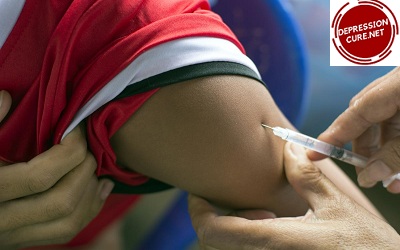
Prevention:
Common bacteria or viruses that cause encephalitis can be spread by coughing, sneezing, kissing, or sharing dishes, cigarettes, or toothbrush.
The following steps can be taken to prevent meningitis:
Wash your hands:
Carefully washing your hands helps prevent germs. In children, make a habit of washing hands before eating and after using the toilet, in a crowded place or after spending time with pets. Teach them to wash their hands thoroughly.
Adopt good hygiene habits:
Do not share drinks, food, straws, food utensils, lip cream, or toothbrushes with anyone. Instruct children and adolescents not to share their personal hygiene items.
Stay healthy:
Keep your immune system healthy by taking adequate rest, regular exercise, and a healthy diet consisting of fresh fruits, vegetables, and whole grains.
Cover your mouth:
Cover your mouth and nose with a handkerchief while sneezing or coughing.
If you are pregnant, take care of food:
Cooking hot dogs, and soft meat at 165 F (74 C) can reduce the risk of ‘listeriosis.’ Avoid eating paneer made of boiled milk. Eat cheese made from pasteurized milk.?
Immunizations:
The following vaccination can prevent some bacterial meningitis –
Haemophilus influenza type B (Hib) vaccine:
In the United States, vaccines that are routinely administered to children include ‘Haemophilus influenza type B,’ which are administered to children from about two months of age.
This vaccine is also recommended for some adults who are suffering from sickle cell disease or AIDS and who do not have a spleen.
Pneumococcal conjugate vaccine (PCV13):
This vaccine is also part of a routine vaccination program for children under two years of age in the United States. Additional doses of the vaccine are recommended for children between 2 and 5 years of age who are at risk of pneumococcal.
Pneumococcal Polysaccharide Vaccine (PPSV23):
This vaccination is given to older children and adults who need protection from pneumococcal bacteria. The Centers for Disease Control & Prevention recommend the PPSV vaccine for people over the age of 65, for young adults, and for children under two who have a weakened immune system or serious illnesses, such as heart disease. Suffering from diabetes or sickle cell anemia and for those who do not have Spleen.
Click Here To Read: Top 25 Ways to be a Good Good Father
Meningococcal conjugate vaccine:
The Centers for Disease Control and Prevention recommends that children between 11 and 12 years of age be given a dose and a booster shot at 16 years of age. If the vaccine was first applied between the ages of 13 and 15, the booster shot would be applied between the ages of 16 & 18.
If the first vaccine is applied at age 16 or older, no booster is required. The vaccine can also be given to young children who are at risk of bacterial meningitis or who are in contact with someone infected with the disease.
It is approved for children up to 9 months of age. The vaccine is also administered in healthy individuals but has previously been used in people with signs of bacterial meningitis.
Diagnosis of Meningitis

Meningitis test/diagnosis:
The diagnosis of meningitis begins with a health history and physical examination. During the physical examination, your doctor examines the following –
- Fever
- Increase in heart rate
- Stiff neck
- Loss of consciousness
Your doctor may also order ‘lumbar puncture.’ This test is also known as ‘spinal tap.’ This helps your doctor check for increased pressure in the central nervous system.
This test helps to detect inflammation or bacteria in the fluid present in the spine. This test can also help determine the best antibiotic for treatment.
Other tests may also be ordered to diagnose meningitis. Other common tests include the following:
Growth of bacteria in blood:

Identifying bacteria in the blood. Bacteria can reach the brain from the blood. These N. meningitides and S. pneumonia can cause both sepsis and meningitis.
Blood test:
Complete blood count with a difference is the general index of health. It checks the number of red & white blood cells in your blood. White blood cells fight infection. Their count is usually increased in meningitis.
Chest X-ray:
This can be used to detect the presence of pneumonia, tuberculosis (TB), or fungal infection. Meningitis may occur after pneumonia.
CT scan:
A CT scan of the head can show problems such as brain abscesses or sinusitis. Bacteria can spread from sinuses to meninges.
Meningitis Treatment?

The treatment:
Treatment depends on the type of meningitis that occurs to you or your child.
-
Bacterial Meningitis
Acute bacterial meningitis should be treated immediately with intravenous antibiotics & use corticosteroids even sooner. These drugs help improve the condition and reduce the risk of complications, such as brain inflammation and seizures.
A combination of antibiotics depends on the type of bacteria causing the infection. Your doctor may recommend a broad-spectrum antibiotic until the exact cause of meningitis is identified.
Your doctor can remove any infected cyanus or mastoid, such as the bones behind the outer ear that are connected to the middle ear.
-
Viral Meningitis-
Antibiotics cannot treat viral meningitis, and in most cases, the patient’s condition improves on its own within several weeks. Treatment of milder stage of viral meningitis usually includes
- Bed Rest
- Excessive fluid intake,
- Pain medications taken from medical stores to reduce fever and relieve body pain.
Your doctor may prescribe medication to reduce swelling in the brain and to control seizures. If the herpes virus causes your meningitis, then antiviral medication is available.
Click Here To Read: 70 Amazing Facts About Dreams
-
Other types of meningitis
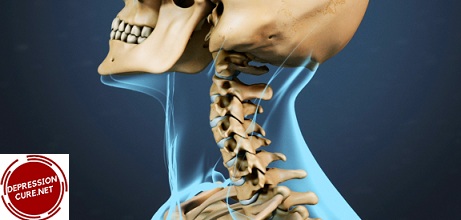
If the cause of your meningitis is not clear, your doctor may begin antiviral and antibiotic treatment until the object is determined.
Chronic meningitis treatment is based on its underlying causes. Anti-fungal drugs treat fungal meningitis, and a combination of specific antibiotics can treat ‘tuberculous meningitis.’
However, these medicines can have severe side effects, so treatment can be stopped until the laboratory confirms that the cause is fungal.
Meningitis Risks & Complications
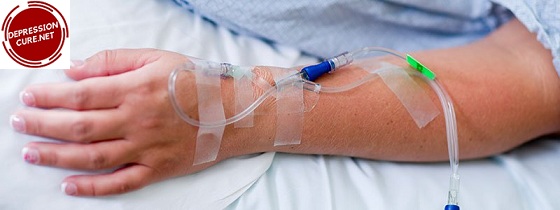 ?
?-
Complications of meningitis
These complications are usually related to meningitis:?
- The tour
- Deafness
- Brain damage
- Hydrocephalus
- A sub-flow of fluid or formation of fluid between the brain and the skull
-
Risk factors of meningitis
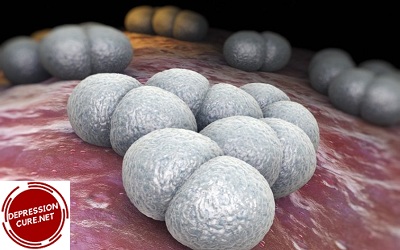
Risk factors for meningitis are:?
-
Compromised Immunity:
People with weak immunity are more susceptible to infection. These include infections that cause meningitis. Some disorders & treatments can weaken your immune system. These include:
- HIV / AIDS
- Autoimmune disorder
- Chemotherapy
- Bone Marrow Transplant
- Cryptococcal meningitis is caused by fungus & is the most common form of meningitis in people with HIV or AIDS.
-
Community Living:
When people live in adjacent houses, meningitis spreads quickly. Being in small spaces increases the likelihood of risk. Examples of these locations include –
- College hostel
- Soldiers’ Homes (Barracks)
- Boarding school
- Day Care Center
-
Pregnancy:
Pregnant women are at increased risk of listeriosis, which is caused by Listeria bacterial infection. The infection can spread to the unborn child.
-
Age:
Risk of meningitis can occur at any age. However, some particular age groups carry a higher risk. Children under 5 are at the highest risk of viral meningitis. Infants are at the highest risk of bacterial meningitis.
-
Working with animals:
Farm-workers and others who work with animals are at increased risk of infection with Listeria.
What to avoid during Meningitis?

Patients with encephalitis are advised to abstain from eating or drinking the following:
- Sugary foods,
- Processed foods,
- Caffeinated beverages,
- All-purpose foods,
- Fish cooked in the oven,
- Alcoholic beverages,
- Meat etc.
Along with the above, meningitis patients are advised to avoid overeating salt (the primary source of sodium) in food.
This is the reason that you should not stop taking salt in your diet completely but try to make a good balance of it. Because your body also needs a certain amount of sodium to function.
What to eat during Meningitis?
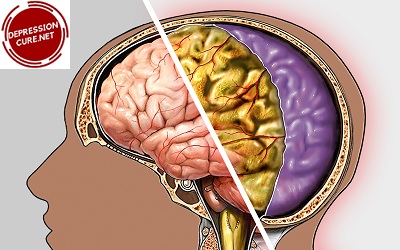
- Fruits & vegetables are known to provide antioxidants, vitamins, essential fatty acids, other nutrients, and minerals which can help the patient recover quickly. They also strengthen the immune system, which protects the body against diseases.
Click Here To Read: 15 Insomnia Facts
Fruits
Watermelon, Grapefruit, Papaya, Berries
Vegetables
Broccoli, Red Capsicum, Carrots, Cabbage, Green Leafy Vegetables
- Include chicken and low-fat meat in your diet. High-quality proteins can provide you with essential nutrients and vitamins, such as omega-3 fats, conjugated linoleic acid (CLA), and vitamin E.
- If you have meningitis, then eat salmon fish. It is a good source of protein.
- It is also good to include various nuts and seeds in the diet of the patient with encephalitis.
- Walnut
- Sunflower seeds
- Pumpkin Seeds
- Chia seeds
Note: Depression Cure does not provide any type of medical advice, diagnosis, or treatment.




